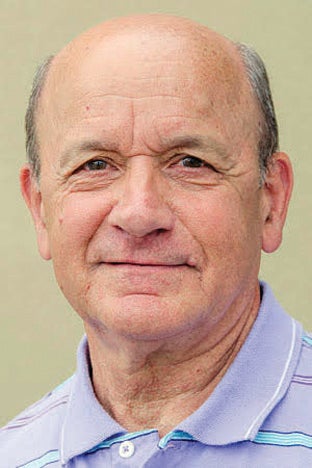LARRY PENKAVA COLUMN: Daddy left his legacy on celluloid
Published 3:30 pm Friday, March 17, 2023
|
Getting your Trinity Audio player ready...
|
Everybody’s a photographer these days.

Larry Penkava
If you own a smartphone, chances are it has a built-in camera. That means everybody and their recently-released brother-in-law is taking pictures.
And lots of us post those photos and videos on social media. Whether it’s grandchildren, pets or that new car, snapshots have a way of getting on the world wide web. Even that scrumptious plate of spicy pork belly cheesesteak finds its way onto somebody’s home page.
But children, it wasn’t always that way. There was a time, back during a previous millennium, when the only people with portable communications devices were Dick Tracy and certain superheroes. Unfortunately, being the only ones with the phones, they had nobody to communicate with.
But I digress.
When I was growing up, back before numerous wars, cameras were well established. But the problem was, they required film to shoot pictures. Film came in a roll that was inserted into the camera and had to be advanced for every shot.
When an entire roll of film was exposed, the photographer removed it and took it to be what was called “developed.” That meant the exposures on the film were changed into negatives which, in turn, were converted into paper photographs.
Movies were developed by the same method, except those long rolls of film were produced on an assembly line.
Mind you, young people, taking pictures in the old days meant spending money for the film and spending again to have it developed. Only then did you realize that half the pics were no good.
Unfortunately, the old film cameras didn’t have preview screens and delete buttons.
The closest things to digital cameras were Polaroids. You couldn’t fix a bad photo but at least you’d know it was bad within a minute.
My father owned a Polaroid as well as a 35-millimeter that he brought out to document our sulky boyish faces. Many were the times a 12-photo album would come in the mail, showing boys who, obviously, didn’t want to be photographed.
But it was Daddy’s movie camera that turned him into a cinematographer. While he didn’t totally abandon the 35-millimeter or Polaroid, he learned to love making movies.
There were action shots of us kids playing, group lineups at family reunions, boys playing in the park, our little sister Jeanne taking her first steps, even ride-alongs aimed out the window of the car.
The best movie was taken after a snowstorm. Mama had taken over the camera and showcased Daddy rubbing snow into my brother David’s face before pulling his toboggan down over his chin.
But that wasn’t the best part. The next shot was Daddy getting hit in the face with a snowball, snagged between his glasses and his right eye.
Hmm. Mama should of won an Oscar with that one.
There came a time when Daddy had shot several rolls of movie film. Not one to hide his candle under a bushel, he would surprise us on Saturday nights by proclaiming it “Movie Night!”
“Ah, Daddy, we’ll miss ‘Gunsmoke,’ ” somebody would say. “That’s alright. We’ll catch that episode next summer on reruns.”
Then Daddy would set up the projector on a table and aim it at his portable silver screen. We might hem-and-haw at first but then cheer at the snowball shot.
After a few years of taking movies, Daddy had all the short reels spliced together to avoid having to re-thread the projector so many times.
By then, the movie may last through “Gunsmoke,” “Have Gun: Will Travel” and “Perry Mason.” But Mama would make it worthwhile by serving popcorn and iced tea.
Years later, when we were all grown and married, Daddy had his movies transferred to VHS tapes. With those, we could have our own movie nights, showing the young’uns that we were once little and foolish, just like them.
More recently, an enterprising son-in-law made CDs of Daddy’s movies. Now his cinematography is preserved for generations to come.
Daddy, if he were still here, couldn’t have been happier, although he never learned to operate a computer.
As for those of us who remain, we owe him for having the foresight to preserve our childhood for the ages.
Larry Penkava is a writer for Randolph Hub. Contact: 336-302-2189, larrypenkava@gmail.com.


